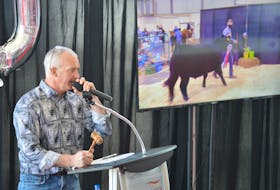Three books about a long-dead American politician climbed to the top of bestsellers’ lists in the past 24 months.
After winning the California Democratic Presidential primary, on June 5, 1968, Bobby Kennedy seemed destined to win his party’s nomination in Chicago in August and the White House in November. Instead, the bullet that entered his brain that night ended his life, officially the next day.
The Chicago convention became the epicentre in the uneven war at home between established law and order and mostly-young radicals who wanted, among other things, to end the war in Vietnam.
Vice President Hubert Humphrey won the Democratic nomination, and Republican Richard Nixon was elected president. The American war in Vietnam lasted another five years.
It’s said that America lost her innocence Nov. 22, 1963, when President John Kennedy was assassinated in Dallas.
Four-and-a-half years later, in a Los Angeles hotel kitchen, his little brother died the same way and America lost her way.
It may be the surname that echoes endlessly through time, or the nearing 50th anniversary of his death, but the resurgence of interest in a man whose purpose became healing the wounds of a nation, could run deeper.
The books – Chris Matthews’ Bobby Kennedy: A Raging Spirit; The Making of a Liberal Icon, by Larry Tye; and The Revolution of Robert Kennedy by John Bohrer – all, by necessity and to varying degrees, focus on the metamorphosis of Kennedy between his brother’s death and his own.
The transition was from tough-minded political fighter to a tribune for the disadvantaged, waging “a noble campaign to unite working-class whites with poor blacks and Latinos in an electoral coalition that seemed poised to redraw the face of presidential politics.” – Tye.
The spectre of that electoral coalition is the nightmare that haunts the otherwise luxurious and untroubled sleep of the ruling class in America.
Bill Clinton and Barak Obama drew together enough elements of it that, when combined with white liberals, won and held the White House.
But Clinton posed no real threat to entrenched wealth and power, and Obama was kept in check, first by the near-depression and then by a Congress duly bought and paid for.
Financed by the wealth of individuals like Omaha’s Koch brothers and mobilized by organizations like the NRA, success in keeping the natural economic coalition divided has been remarkable. The result is five decades of almost uninterrupted concentration of wealth and – protected by decisions like Citizens United – realpolitik power in fewer hands.
Progressive Americans can enjoy their moment of victory in last week’s resounding backlash against Trumpism in state and local elections. But if they want to reclaim their nation, they need to do more than get out the sane vote. They need to rebuild Bobby’s coalition.
The white working class sent Donald Trump to the White House, where the perversion of the American dream may have reached its apex.
The true colors of the aristocrat disguised as a populist are easily recognized in tax proposals that include deductions for private school tuition, while closing the “loophole” that allowed public school teachers to claim a deduction for buying the school supplies their students can’t afford.
That kind of tax reform offers the opportunity to shake loose white. working class voters and bring them into the more progressive tent where they belong.
Trump was never the darling of the right-wing ruling elite in America. They saw the risk in his brand of division. It’s overt. It opens wounds Americans from all demographics want to heal, and many thought had.
And so more are looking back to Bobby Kennedy, whose efforts to heal were personal and political.
His favorite quote, from the Greek tragedian Aeschylus – “Even in our sleep, pain which cannot forget falls drop by drop upon the heart, until, in our own despair, against our will, comes wisdom through the awful grace of God,” – speaks to his own tragedy and emergence, as well as his hope for America to also gain wisdom through its pain.
Jim Vibert, a journalist and writer for longer than he cares to admit, consulted or worked for five Nova Scotia governments. He now keeps a close and critical eye on provincial and regional powers.








